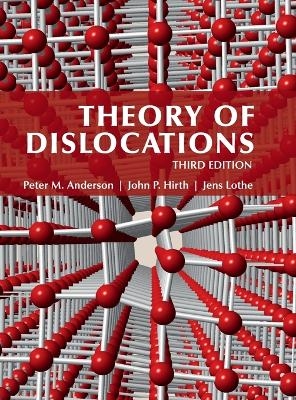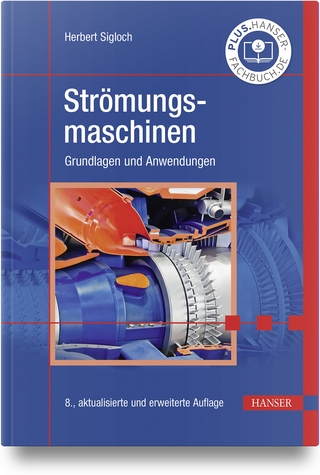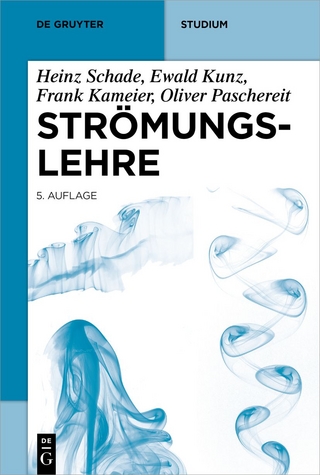
Theory of Dislocations
Cambridge University Press (Verlag)
978-0-521-86436-7 (ISBN)
Theory of Dislocations provides unparalleled coverage of the fundamentals of dislocation theory, with applications to specific metal and ionic crystals. Rather than citing final results, step-by-step developments are provided to offer an in-depth understanding of the topic. The text provides the solid theoretical foundation for researchers to develop modeling and computational approaches to discrete dislocation plasticity, yet it covers important experimental observations related to the effects of crystal structure, temperature, nucleation mechanisms, and specific systems. This new edition incorporates significant advances in theory, experimental observations of dislocations, and new findings from first principles and atomistic treatments of dislocations. Also included are new discussions on thin films, deformation in nanostructured systems, and connection to crystal plasticity and strain gradient continuum formulations. Several new computer programs and worked problems allow the reader to understand, visualize, and implement dislocation theory concepts.
Peter M. Anderson received his ScB degree in Engineering from Brown University, Rhode Island in 1981 and his ScM and PhD degrees in Applied Sciences from Harvard University, Massachusetts in 1982 and 1986, respectively. Following a two-year post-doctoral fellowship at the University of Cambridge, he joined Ohio State University where he is currently Professor and Chair in the Department of Materials Science and Engineering. He has authored or coauthored over 100 articles on mechanical behavior of bulk and thin film materials, including a chapter on crystal plasticity in Fundamentals of Metal Forming and a set of over 300 PowerPoint lecture slides that serve as an instructors' resource for the introductory textbook Materials Science and Engineering: An Introduction. He has held visiting positions at Brown University, the National Institute of Standards and Technology, Ruhr-Universität Bochum, and Los Alamos National Laboratory, where he was Bernd T. Matthias Scholar. He is recipient of an Office of Naval Research Young Investigator Award, three-time recipient of the Boyer Award for Teaching Innovation, and also received the Lumley Research Award. Professor John P. Hirth received his undergraduate degree from Ohio State University in 1953 and his PhD from Carnegie Mellon University, Pennsylvania (then Carnegie Institute of Technology) in 1957. He taught at the latter institution for a short period after a postdoctorate year at the University of Bristol. He was then a Professor at Ohio State University in 1988 and at Washington State University in 1988–99, when he retired to Arizona, remaining affiliated with Los Alamos National Laboratory. His research has been in the areas of dislocation theory, phase transformations, and mechanical properties. In addition to many scientific articles, he has coauthored two books on the above subjects and has received a number of awards recognizing his work. Jens Lothe studied physics at the University of Oslo, where he received the cand.real. degree in 1956 and the dr. philos. degree in 1968. He has held a number of positions at the University of Oslo, including research assistant, lecturer, associate professor (dosent), and professor (1972–92). He was also a Norwegian Research Council Student at University of Bristol, assistant professor at Carnegie Mellon University, Pennsylvania (then Carnegie Institute of Technology), and Battelle visiting professor at Ohio State University. Professor Lothe's research interests include nucleation theory, dislocation theory, and elastic wave theory for anisotropic media. Lothe is author or coauthor of approximately 120 papers. He is coauthor (with J. Hirth) of previous editions of Theory of Dislocations (first edition, 1968; second edition, 1982; reprint edition, 1992). He coedited/authored Elastic Strain Fields and Dislocation Mobility, volume 31 of the series Modern Problems in Condensed Matter Sciences (with Prof. V. L. Indenbom, 1992). Professor Lothe has been a member of the Norwegian Academy of Science and Letters since 1973.
Part I. Isotropic Continua: 1. Introductory material; 2. Elasticity; 3. Theory of straight dislocations; 4. Theory of curved dislocations; 5. Applications to dislocation interactions; 6. Applications to self energies; 7. Dislocations at high velocities; Part II. Effects of Crystal Structure: 8. The influence of lattice periodicity; 9. Slip systems of perfect dislocations; 10. Partial dislocations in FCC metals; 11. Partial dislocations in other structures; 12. Dislocations in ionic crystals; 13. Dislocations in anisotropic elastic media; Part III. Interactions with Point Defects: 14. Equilibrium defect concentrations; 15. Diffusive glide and climb processes; 16. Glide of jogged dislocations; 17. Dislocation motion in vacancy supersaturations; 18. Effects of solute atoms on dislocation motion; Part IV. Groups of Dislocations: 19. Grain boundaries and interfaces; 20. Dislocation sources; 21. Dislocation pileups and cracks; 22. Dislocation intersections and barriers; 23. Deformation twinning.
| Erscheint lt. Verlag | 16.1.2017 |
|---|---|
| Verlagsort | Cambridge |
| Sprache | englisch |
| Maße | 222 x 293 mm |
| Gewicht | 2200 g |
| Themenwelt | Naturwissenschaften ► Physik / Astronomie ► Strömungsmechanik |
| Technik ► Fahrzeugbau / Schiffbau | |
| Technik ► Maschinenbau | |
| ISBN-10 | 0-521-86436-4 / 0521864364 |
| ISBN-13 | 978-0-521-86436-7 / 9780521864367 |
| Zustand | Neuware |
| Informationen gemäß Produktsicherheitsverordnung (GPSR) | |
| Haben Sie eine Frage zum Produkt? |
aus dem Bereich


